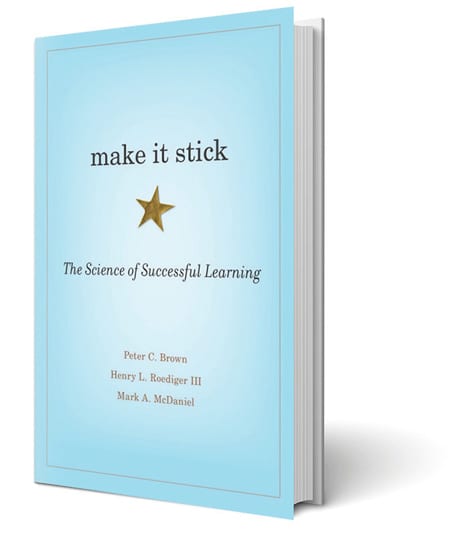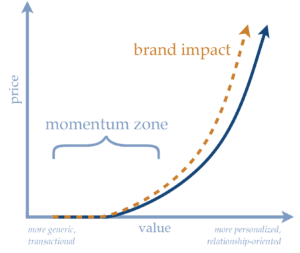If you’re familiar with our work, you’ve probably noticed that we use the term “leading learning” quite a bit. We’ve got the Leading Learning podcast, the Leading Learning Symposium, and Jeff’s even written a book, Leading the Learning Revolution. It’s obviously an important concept to us — but what does it mean to lead learning?
Since this week marks the one year anniversary of the Leading Learning podcast, we thought it fitting to take some time and reflect on the very concept that inspired it.
In this episode, Celisa and Jeff delve into what it means to lead learning and they offer seven points of reflection for individuals and organizations to consider as true leaders in the business of lifelong learning.
To tune in, just click below. To make sure you catch all of the future episodes, be sure to subscribe by RSS or on iTunes. And, if you like the podcast, be sure to give it a tweet!
Listen to the Show
Read the Show Notes
[00:20] – A note that this is a special episode because it marks the one-year anniversary of the Leading Learning podcast.
[00:36] – Thank you to CommPartners, makers of the Elevate Learning platform, for being the sponsor for this episode of the Leading Learning podcast.

[00:49] –Celisa and Jeff discuss the concept of “leading learning” which is behind this podcast, the Leading Learning Symposium, as well as Jeff’s book, Leading the Learning Revolution.
[02:07] – Leading learning starts with a realization of the broad impact that learning can have on a field or industry. Learning is necessary to support bringing new workers into the field to give them the skills and knowledge they need (we had a discussion about this in a recent podcast episode with Shelly Alcorn and Elizabeth Engel).
Learning is the catalyst for change in just about any part of our lives. In order to move a particular field forward, you need to have a forward-thinking vision of what the future state looks like and then think methodically about what type of learning needs to happen in order to make that a reality.
Lifelong learning is becoming increasingly important, especially when you consider “the other 50 years” and other disruptions in the market such as artificial intelligence and machine learning.
To help make the concept of “leading learning” a bit easier to explore, we created:
7 Points of Reflection
[06:25] – 1. Are we supporting our learners effectively in “learning to learn” and helping them to maximize the return they get from learning experiences?
Many adult learners don’t come through an education system that sets them up to be effective lifelong learners. We’ve written about this in the past – check out Is the average adult well prepared to be an effective lifelong learner?
We discussed this in our previous podcast episode with Dr. Brian McGowan and how as we are facilitating learning experiences many learners aren’t taking the actions they need to in order to actually learn.

We also interviewed Peter C. Brown, co-author of Make It Stick: The Science of Successful Learning and talked about how many of the strategies that make for more effective learning (such as spacing and interleaving) often get pushback on from the learner since they are harder. It is up to us to us as leaders to help the learners understand how to learn more effectively.
[08:45] – 2. Are we investing in the performance and effectiveness of our subject matter experts, presenters, and facilitators?
Even though subject matter experts (SMEs), presenters, etc. may have a lot of knowledge, they may not be the best teachers so it is important to make the investment in order to help them become effective facilitators – this also has the added benefit of potentially building a deeper relationship with them.
[11:20] – 3. Are we thinking and acting in terms of networks and relationships instead of transactions – i.e., do we treat learning as a process or an event?
Learning isn’t just about holding an event – it’s about connecting people and connecting them in meaningful ways. We initially created the podcast as a way to connect with participants of the Leading Learning Symposium, both before and after, in order to strengthen the learning. For organizations leading learning, this is an important concept to think about but learning has to be a long-term process.
(See our related blog post, Do you treat learning like an event or a process?)
[14:15] – 4. Have we articulated a clear value story for our portfolio of learning offerings and developed to support it?
As an organization you need to understand how your products fit together to support the overall learning process. And you have to make sure the learners understand as well so it has to be communicated clearly. (Learn about The Value Ramp).

[16:27] – 5. Have we found and do we continue to seek a variety of ways to demonstrate the impact of our learning offerings?
We discussed the importance of impact in our recent podcast episode, One Word: Impact. Increasingly, you need to be able to demonstrate that the learning experiences you are providing are moving the dial and making an impact on the entire field or industry you are serving.
Many organizations take the “smile sheet” approach and ask questions not actually focused on the learning. (Check out our interview with Dr. Will Thalheimer on the dangers of smile sheets).
And note that we are purposefully referencing past podcast episodes in order to tie themes together and connect the dots for how everything is related.
[19:33] – 6. Do we understand the overlap between marketing and learning and are we continually striving to improve our capacity to leverage that relationship?
The idea of content marketing is discussed and how it has become mainstream in terms of the relationship between marketing and learning — they should feed off of each other and it is noted that good marketing should be truly valuable.
[21:19] – 7. Are we using technology in ways that effectively support all of the above?
Technology is what has caused the most amount of change but it is also what will help us deal with the change. We purposefully ended the discussion with technology because it’s important to start with the other concepts first in order to create an overall vision for leading learning.
Technology is the glue that holds all of this together and gives you the tools you need to effectively lead learning.
[22:45] – We highly recommend reflecting on these questions internally and as a team to potentially come up with some actions related to each of them. You need to start to conceptualize yourself as a learning leader and conceptualize your organization as leading learning in the field or industry you serve.
[23:30] – Wrap-Up
If you are getting value from the Leading Learning podcast, be sure to subscribe by RSS or on iTunes. We’d also appreciate if you give us a rating on iTunes by going to https://www.leadinglearning.com/itunes.
Also, please tell others about the podcast. Go to https://www.leadinglearning.com/share to share information about the podcast via Twitter, or send out a message on another channel of your choosing with a link to https://www.leadinglearning.com/podcast.
Thanks again to CommPartners for sponsoring this podcast episode.
A reminder to check out the Leading Learning Symposium, an event designed specifically for senior leaders at organizations in the business of lifelong learning, continuing education, and professional development.
[25:19]- Sign off
See also:


Leave a Reply